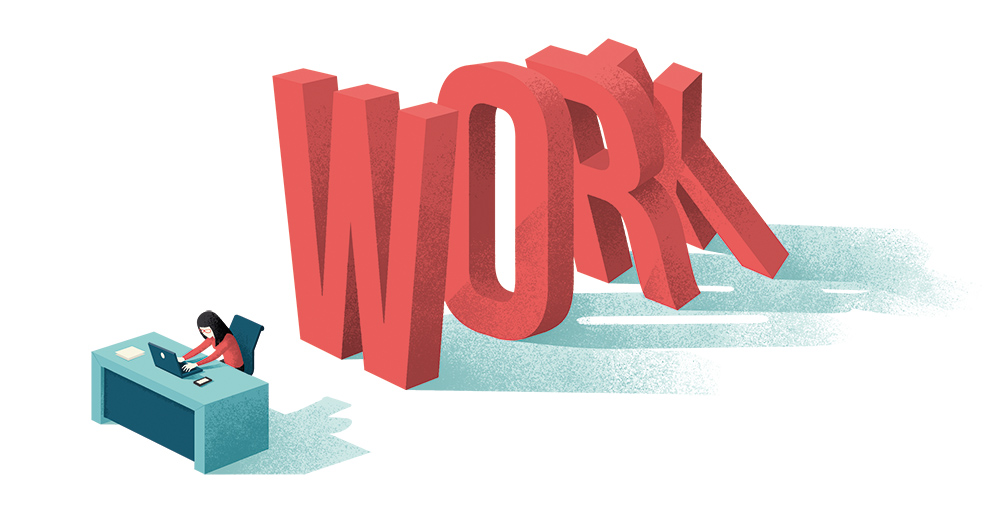How to balance home and work priorities
Our new columnist, award-winning coach Kim Morgan, meets a woman who puts work before everything else in her life, and tries to help her balance her priorities

Obsessed with work
Esther was a successful television executive in her early 60s. I’d been asked to coach her by her employers, who told me, ‘Esther takes being a workaholic to another level. She’s in the office before anyone else and is always the last to leave, often after midnight. She doesn’t look after her health and had a heart attack a few months ago. She has returned to work sooner than her medical team advised. We’re worried she’ll work herself into the grave. We’ve tried to speak to her, but it’s like talking to a brick wall.’
I said I was surprised that Esther had agreed to see me. Her employers confessed she’d agreed reluctantly, saying, ‘She’s quite dismissive of any “fluffy, touchy-feely stuff”, as she calls it, but we’ve insisted she gives it a try.’
Coaching a client who doesn’t want to be coached is not easy, but Esther had not refused to see me, which was encouraging. When we met for the first session, I was overwhelmed by the extent to which work dominated her life. She wasn’t really fully present in the session, checking her phone for emails and appearing impatient with the reflective nature of the coaching process. Her biggest concern was to protect her professional reputation, as she thought ill-health would affect people’s view of her ability to do her job.
I discovered that she worked seven days a week and had no outside interests. Her husband had given up expecting to spend time with her and took holidays alone because Esther thought holidays were a waste of time. She asked to cut the session short as she had a meeting to go to, and we agreed to a second coaching session in two weeks’ time.
Facing the truth
Before our second session, I met with my supervisor for some guidance. ‘I felt like a failure; I couldn’t get through to her at all,’ I said. ‘She was obsessed with her work persona and I didn’t get close to the real person.’ My supervisor said that people who have a work addiction have a distorted sense of reality. This can destroy their family life and health, just like any other addictions. In the end, all that matters to them is public recognition of their success.
My supervisor commented that I seemed really upset and he challenged me about whether I’d recognised something of myself in Esther. This was hard to admit, but true. I realised Esther represented the person I would be in the future if I were to carry on working the way I did. It had been like holding up a mirror to my own behaviour and it was a big moment in my life that led me to make some important changes.
When Esther and I met again, I could see she was not well. She told me she’d experienced some complications following her surgery and early return to work. She had not told her employer about this, either. I was shocked by her disregard for her life, her health and her employer. I challenged her: ‘How is making reality TV programmes more important than your life?’. I also encouraged her to access some support: ‘What support do you need to enable you to stay at home and recuperate? Who can give you this support?’
I learned that fear was at the root of her work obsession. Esther told me that she grew up in poverty because her father didn’t like work and she was determined that she wouldn’t be like her father and would never be poor again. I congratulated her on achieving her childhood goal and encouraged her to consider that she could let go now, but to no avail. At the end of our second session, Esther said she didn’t want to continue with the coaching. ‘You can’t teach an old dog new tricks,’ she said, and winked at me as she swept out of the room in a hurry.
I felt like I had let her down, but I was reminded that successful coaching requires a desire to change on the part of the person being coached. I often think about Esther and hope that she was able to gain a new perspective on life and work before it was too late for her.
For more from Kim, go to barefootcoaching.co.uk.
Illustration: Andrea De Santis








